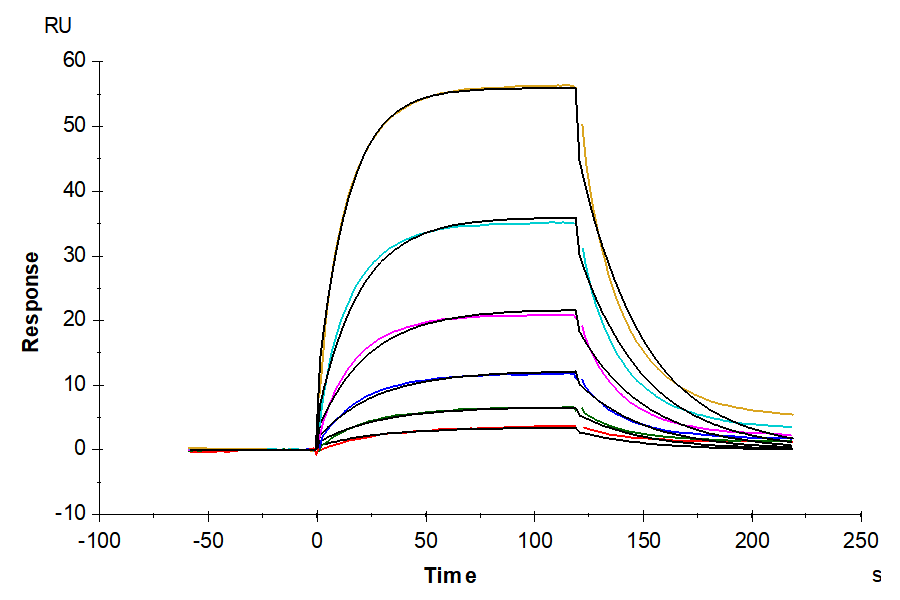|
| Mouse PD-L1/B7-H1 Protein (LTP10707) |
|
| LTP10707 |
|
| 100ug |
|
|
$327 In stock |
| B7-H1, also known as PD-L1 and CD274, is an approximately 65 kDa transmembrane glycoprotein in the B7 family of immune regulatory molecules. PD-L1 has been identified as the ligand for the immunoinhibitory receptor programmed death-1(PD1/PDCD1) and has been demonstrated to play a role in the regulation of immune responses and peripheral tolerance. |
| Recombinant Mouse PD-L1/B7-H1 Protein is expressed from Expi293 with hFc tag at the C-terminal. It contains Phe19-Arg238. |
|
| PD-L1/B7-H1 |
|
| Mouse |
|
| NP_068693 |
|
| Phe19-Thr238 |
|
| The protein has a predicted MW of 51.5 kDa. Due to glycosylation, the protein migrates to 70-80 kDa based on the Tris-Bis PAGE result. |
|
| The affinity constant of 92.49 nM as determined in SPR assay (Biacore T200). See testing image for detail. |
|
| C-hFc |
|
| Expi293 |
|
| > 95% as determined by Tris-Bis PAGE; > 95% as determined by HPLC |
|
| Less than 1EU per ug by the LAL method. |
|
| Lyophilized from 0.22 um filtered solution in PBS (pH 7.4). Normally 5% trehalose is added as a protectant before lyophilization. |
|
| Reconstituted protein stable at -80 C for 12 months, 4 C for 1 week. Use a manual defrost freezer and avoid repeated freeze-thaw cycles. |
|
| Shipped at ambient temperature. |
|
| Centrifuge tubes before opening. Reconstituting to a concentration of more than 100 ug/ml is recommended. Dissolve the lyophilized protein in distilled water. |
|
|  |
 https://www.lifetein.com
100 Randolph Road, Suite 2D,
Somerset
USA
New Jersey
08873
https://www.lifetein.com
100 Randolph Road, Suite 2D,
Somerset
USA
New Jersey
08873
 https://www.lifetein.com
100 Randolph Road, Suite 2D,
Somerset
USA
New Jersey
08873
https://www.lifetein.com
100 Randolph Road, Suite 2D,
Somerset
USA
New Jersey
08873